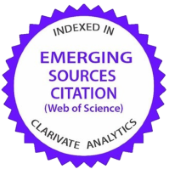Sustainability in Business Events: How Hybrid Formats Shape Attendee Decision-Making
DOI:
https://doi.org/10.29036/jots.v15i29.1006Keywords:
Hybrid Events, Sustainability Practices, Business Events, Attendee Decision-Making, Virtual Participation, Sustainable Event Planning, Sustainable TransformationAbstract
This study explores how the availability of hybrid business event formats influences attendees' decision-making concerning sustainable practices, addressing a gap in understanding how hybrid formats impact participation choices in the context of sustainability. The research specifically aims to examine how sustainability practices in accommodation, transportation, catering, and venue selection affect the likelihood of on-site attendance and how the option of hybrid participation shifts preferences toward virtual engagement. Data was collected from 533 international business event attendees, and Partial Least Squares Structural Equation Modelling (PLS-SEM) was used for analysis. The findings reveal that hybrid events, while promoting inclusivity and reducing environmental impacts, often lead to increased online participation, particularly among attendees with strong environmental concerns. Even when sustainable practices are implemented on-site, many participants prefer virtual options to minimise their carbon footprint further. This poses a challenge for event organisers striving to balance sustainability goals with the need to maintain physical attendance to keep the business industry running. The study offers practical recommendations for organising more sustainable and inclusive events, emphasising the importance of integrating green practices while leveraging hybrid formats to meet evolving participant preferences. These insights are crucial for guiding the future of sustainable event planning in the business events industry.
Downloads
Downloads
Published
Issue
Section
License
Copyright (c) 2024 Journal of Tourism and Services

This work is licensed under a Creative Commons Attribution-NonCommercial-NoDerivatives 4.0 International License.
Journal of Tourism and Services (ISSN 1804-5650) is published by the Center for International Scientific Research of VŠO and VŠPP in cooperation with the following partners:
- Juraj Dobrila University of Pula, Faculty of Economics and Tourism, Croatia
- School of Business and Administration of the Polytechnic Institute of Setúbal, Portugal
- Szent István University, Faculty of Economics and Social Sciences, Hungary
- Pan-European University, Faculty of Business, Prague, Czech Republic
- Pan-European University, Faculty of Entrepreneurship and Law, Prague, Czech Republic
- University of Debrecen Faculty of Economics and Business, Hungary
- University of Zilina, Faculty of Operation and Economics of Transport and Communications, Slovakia
The publisher provides a free access policy to the Journal of Tourism and Services.





